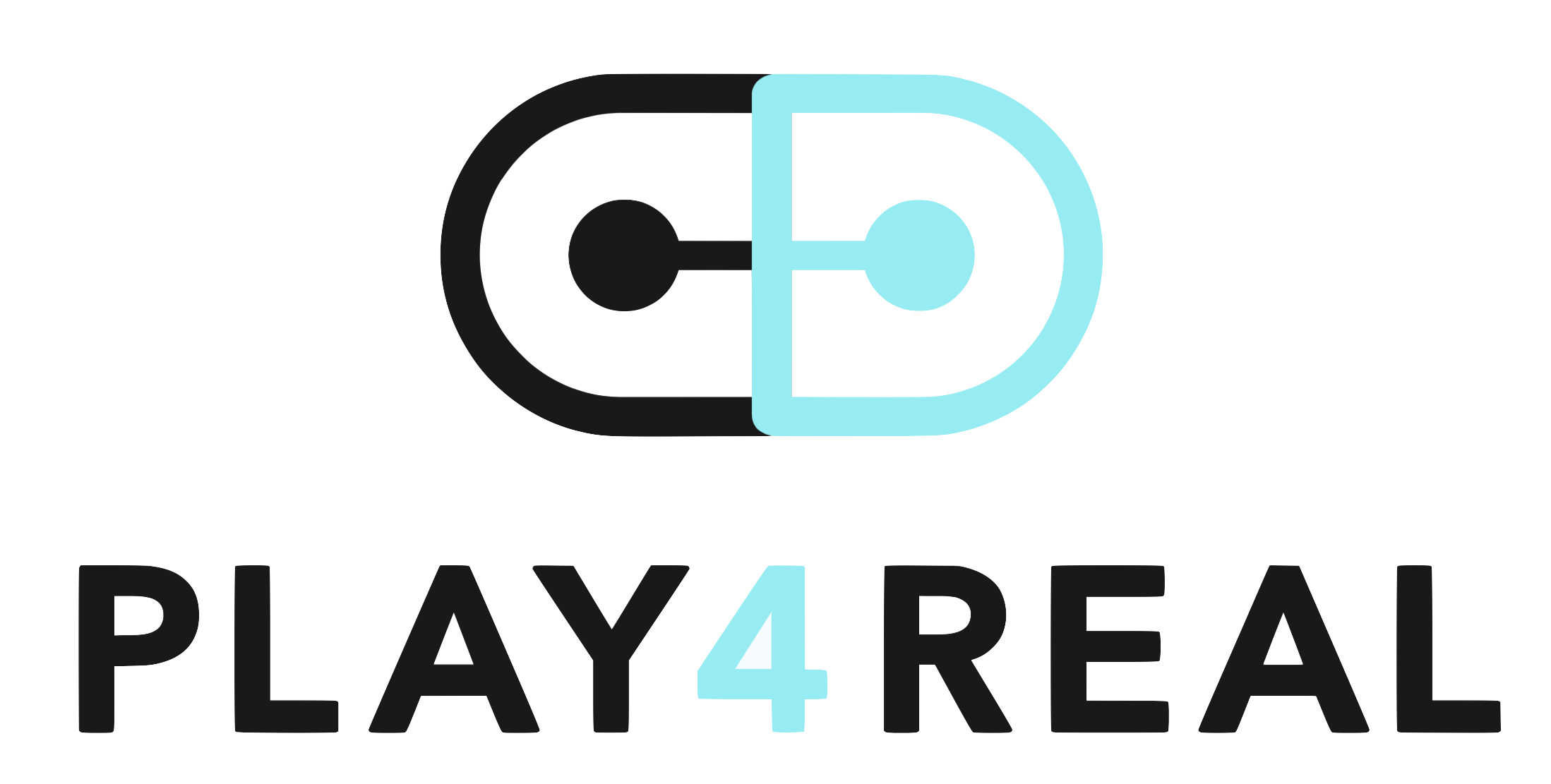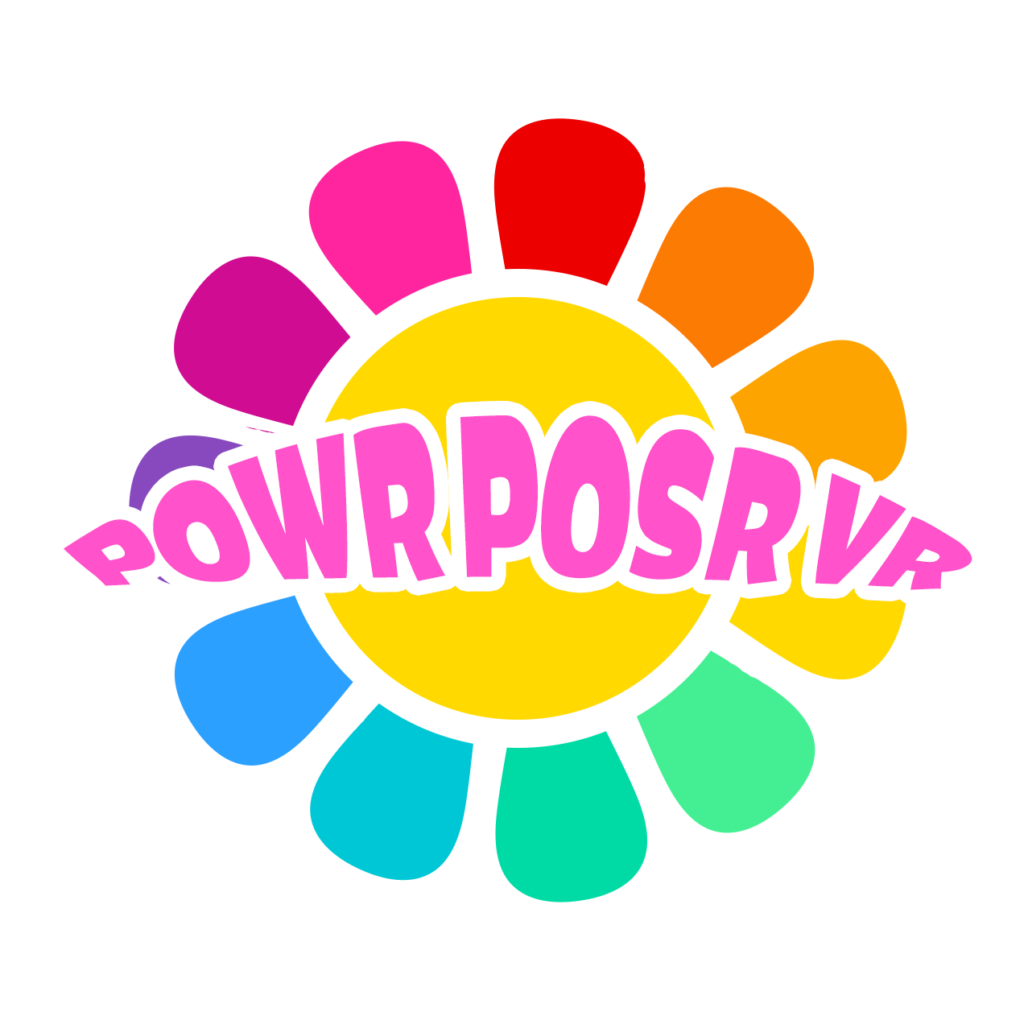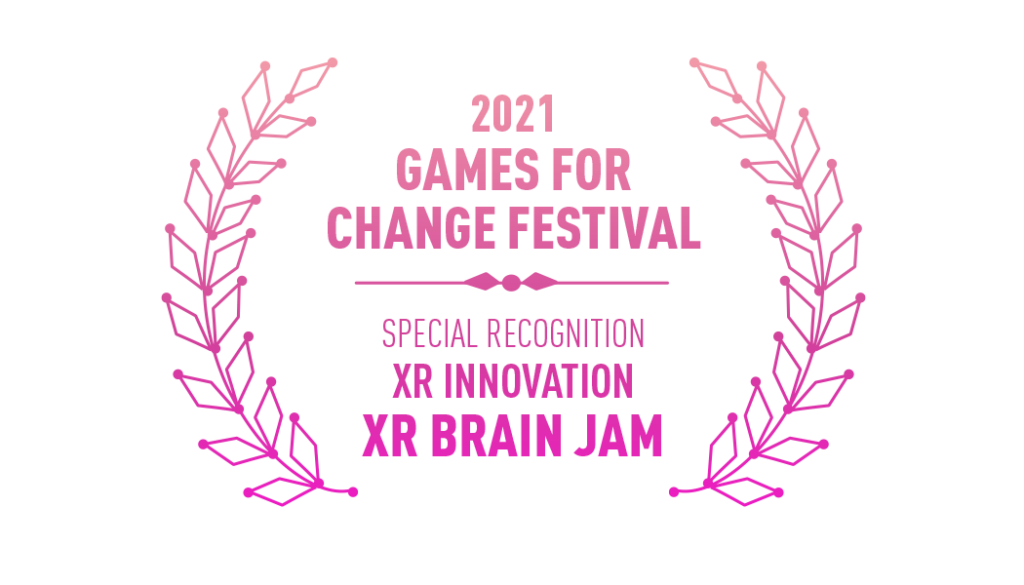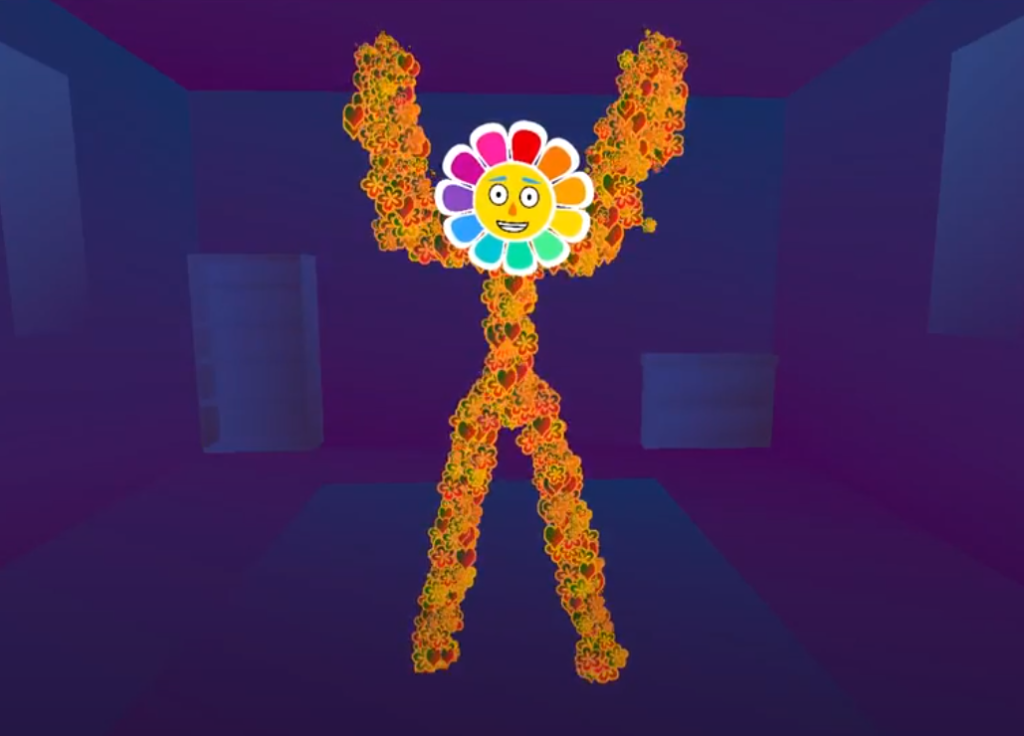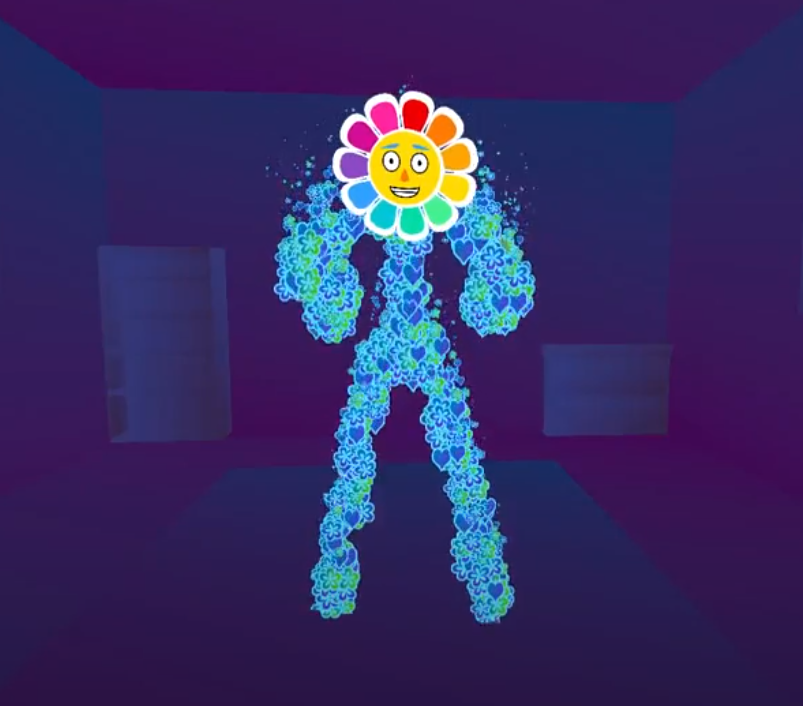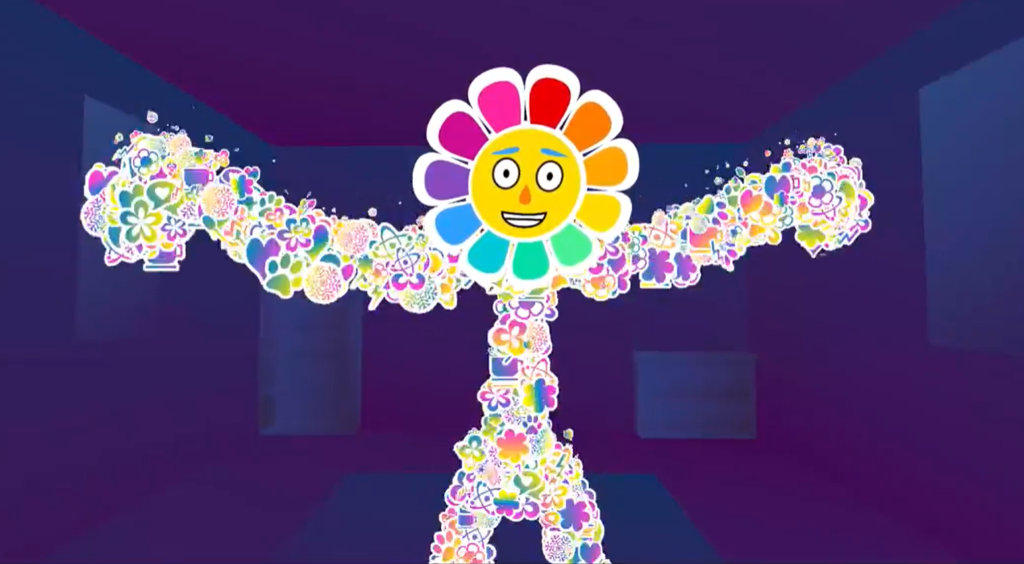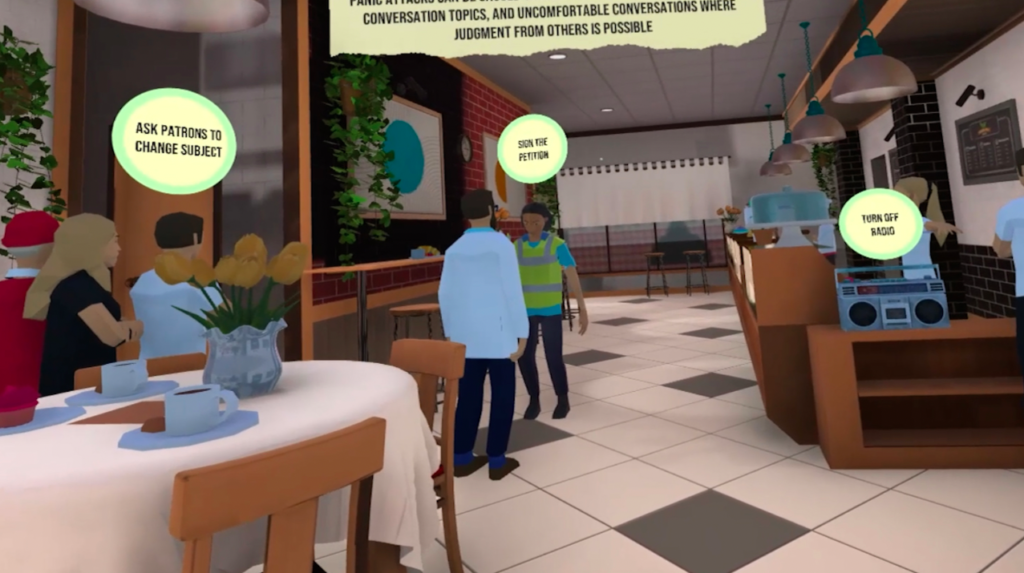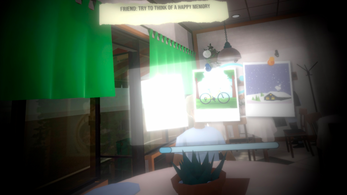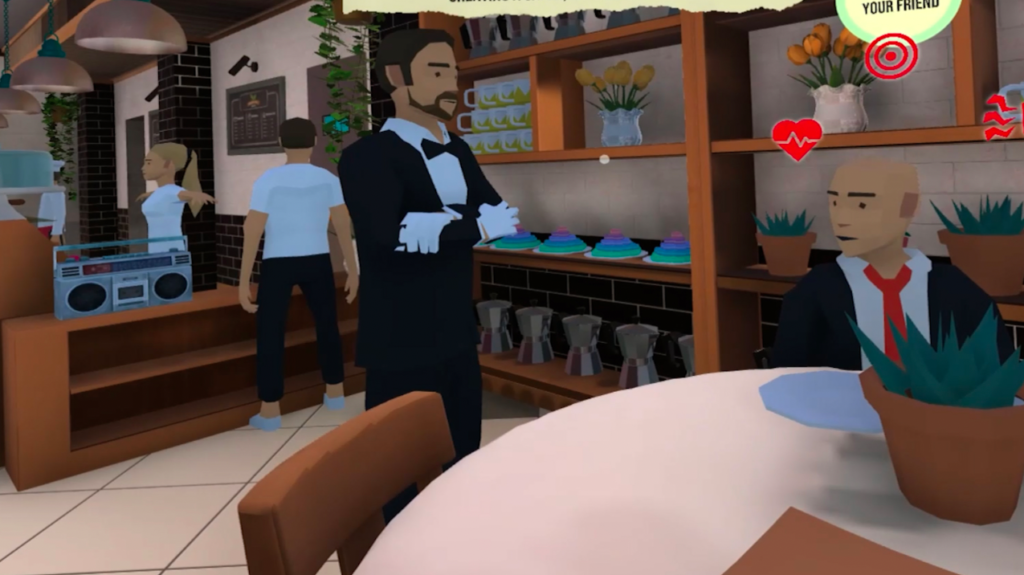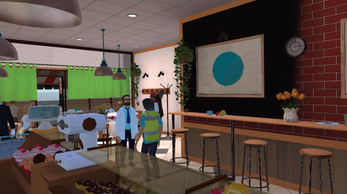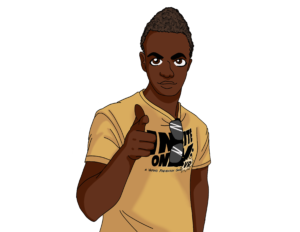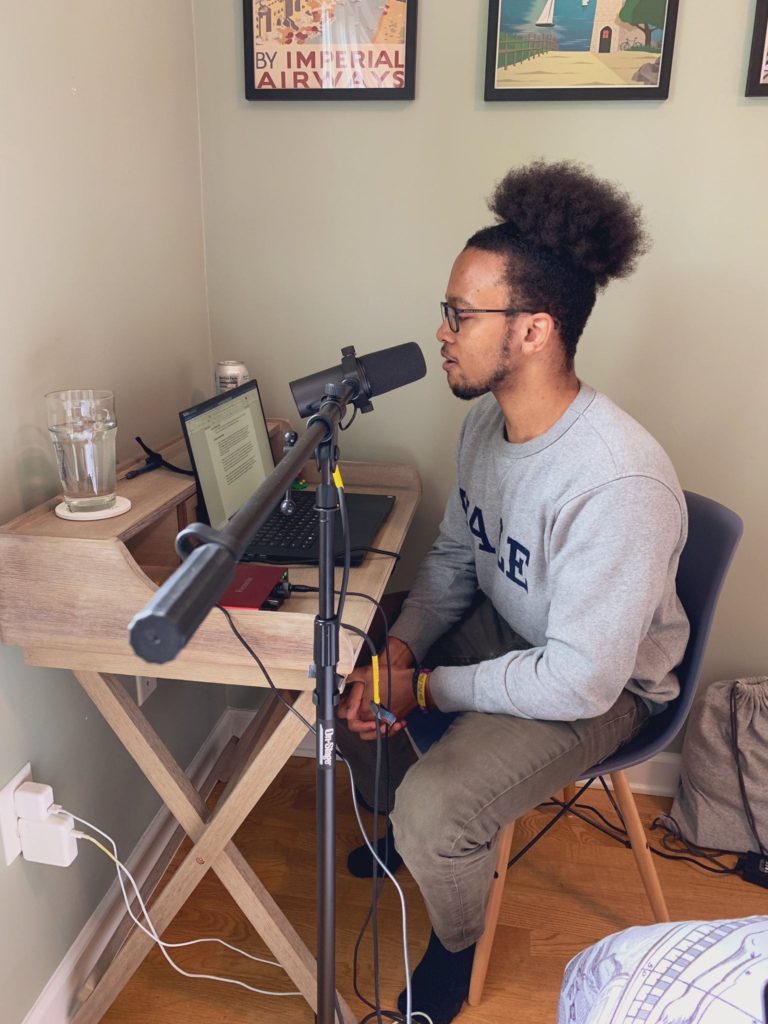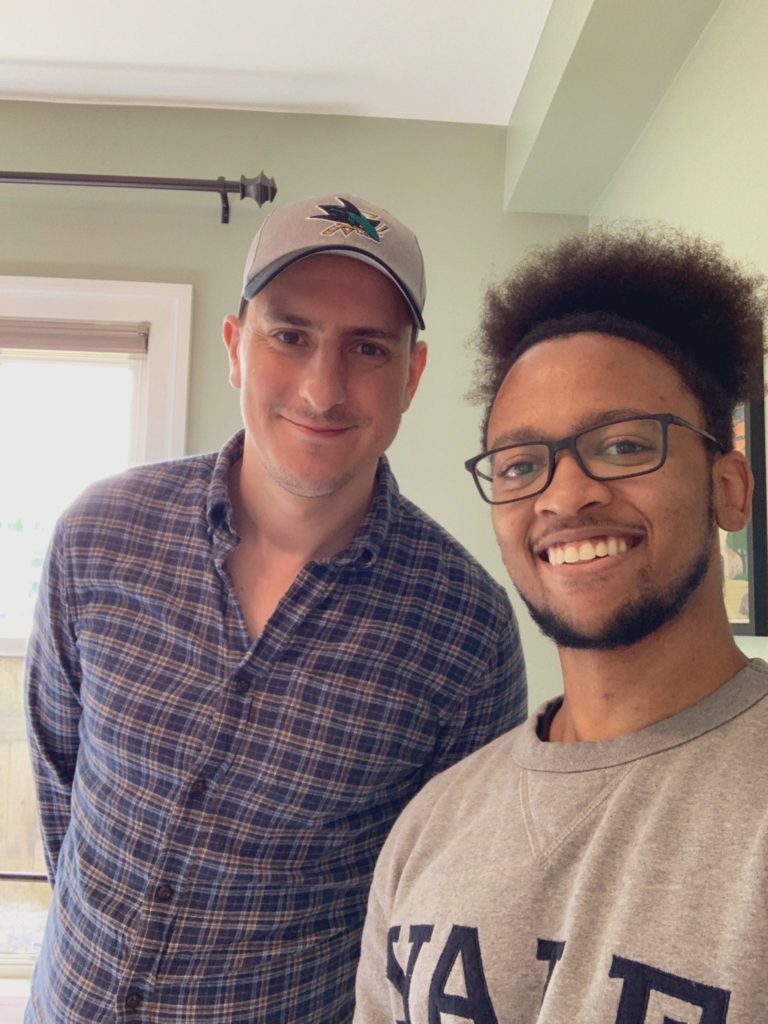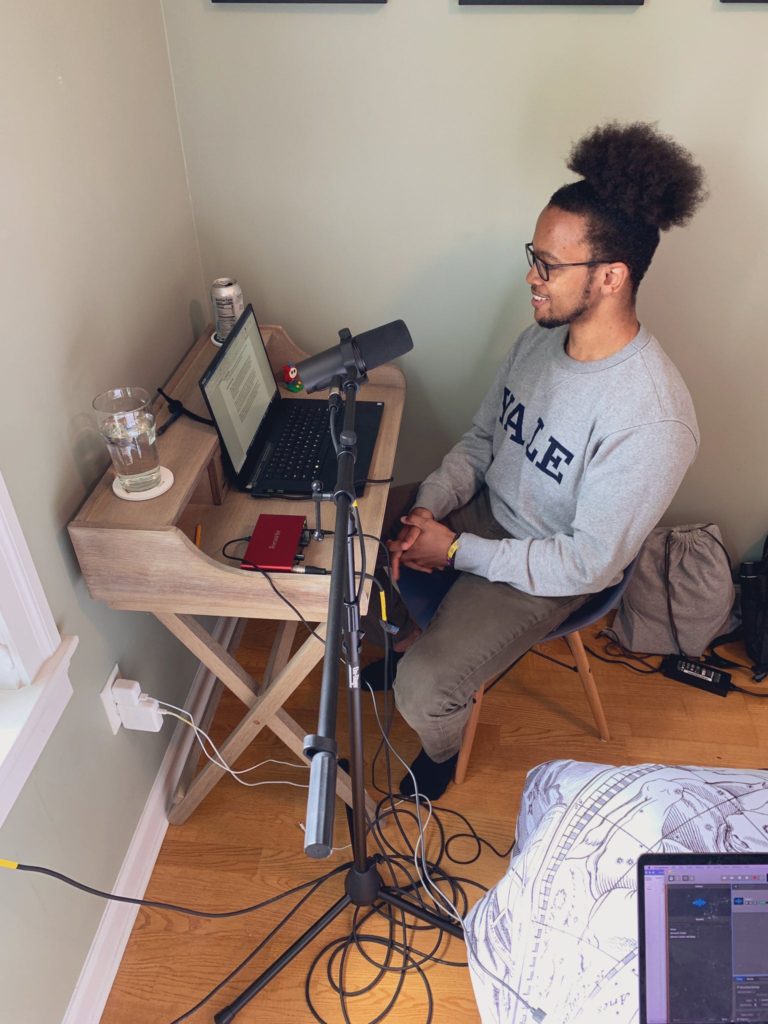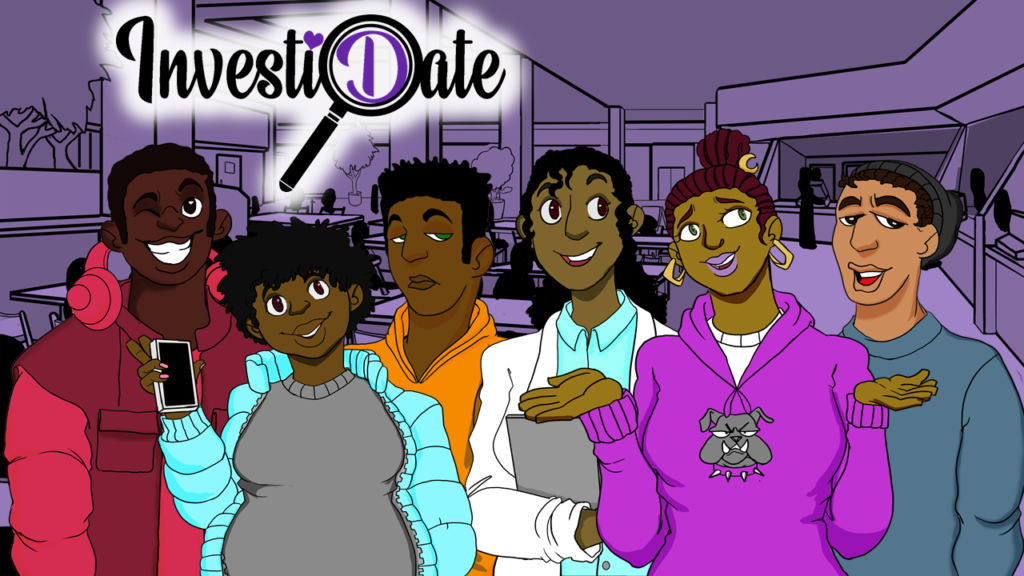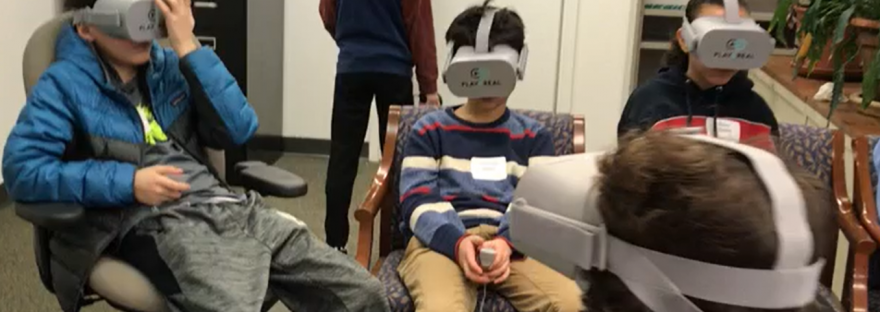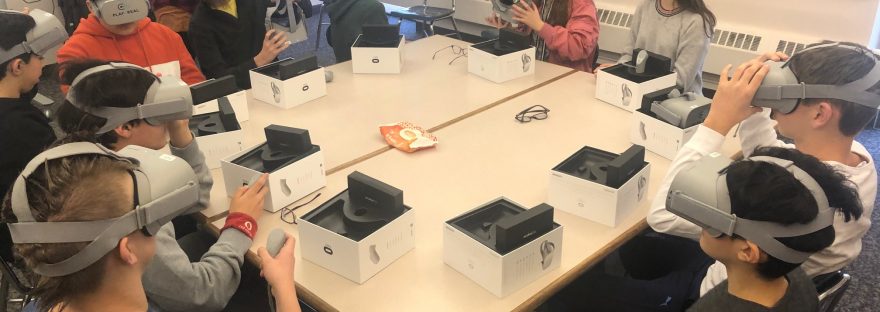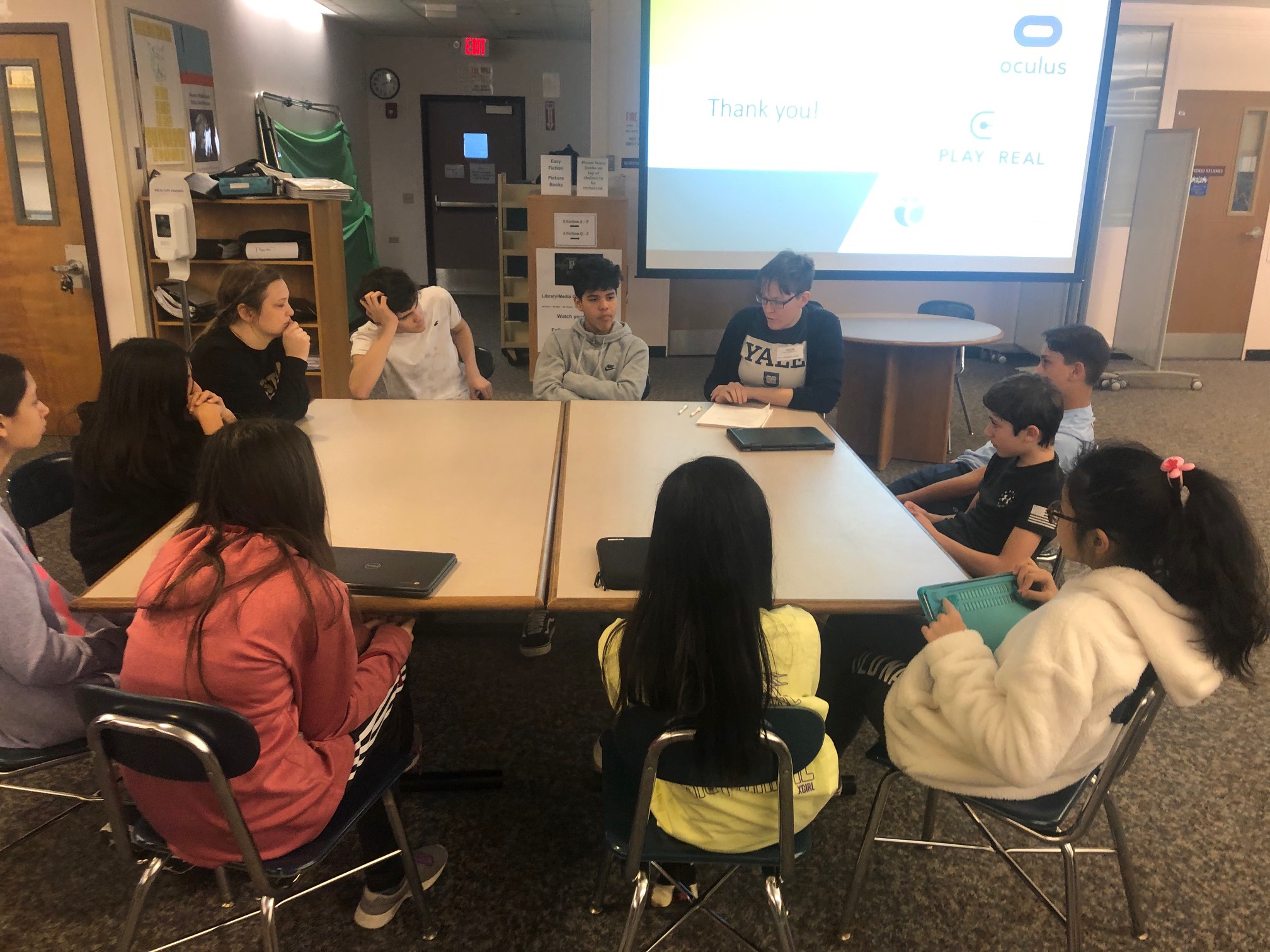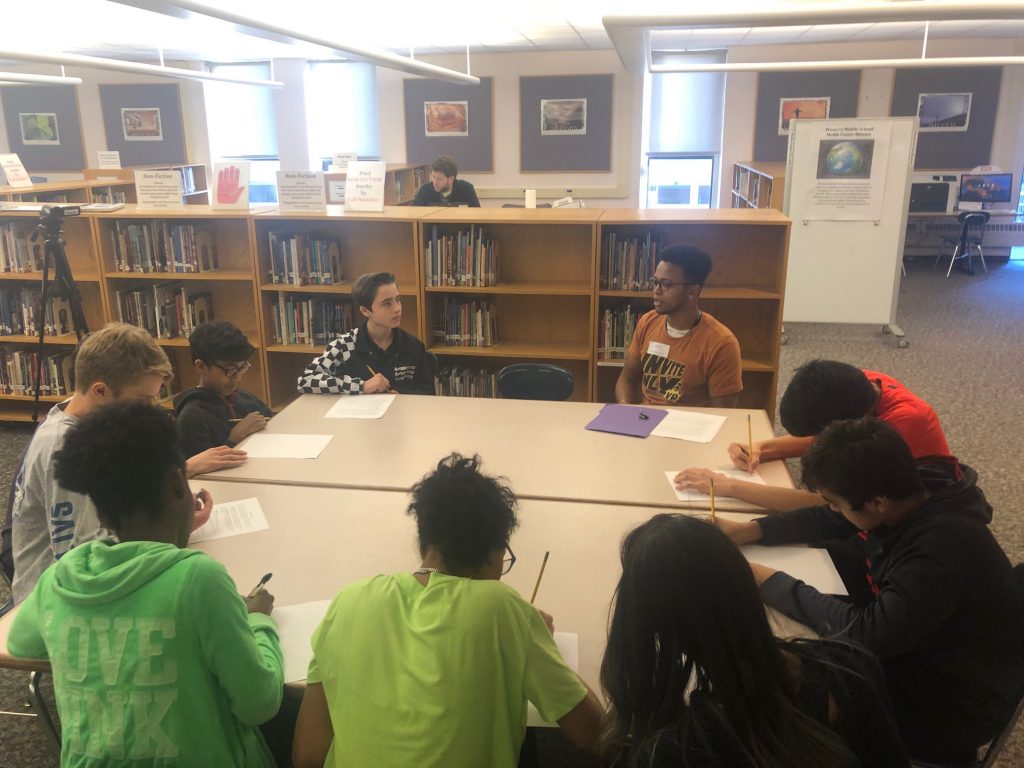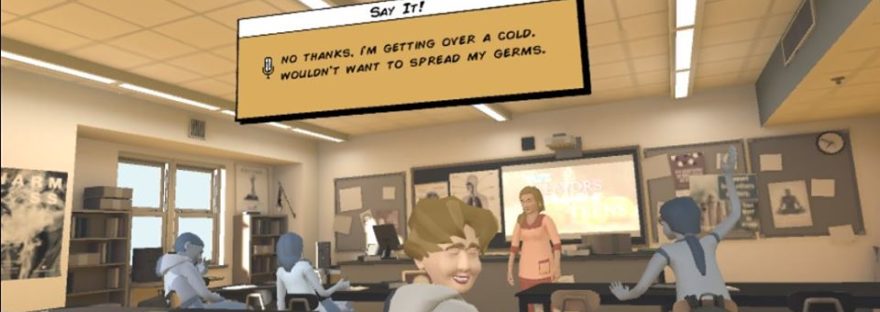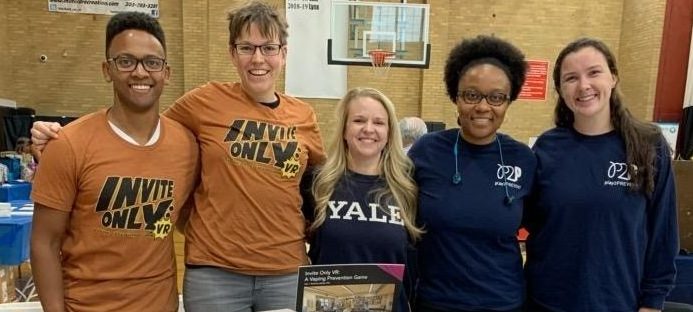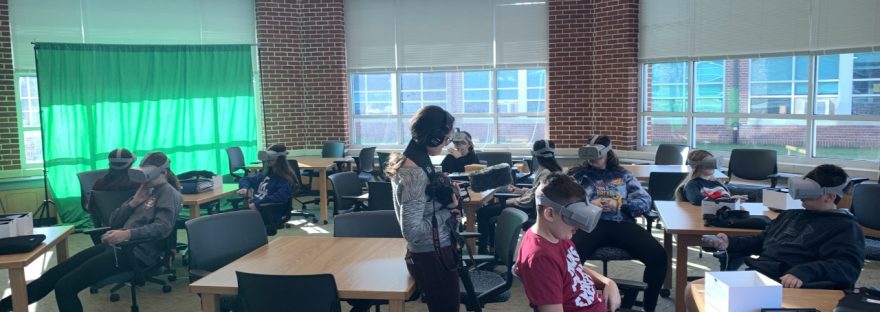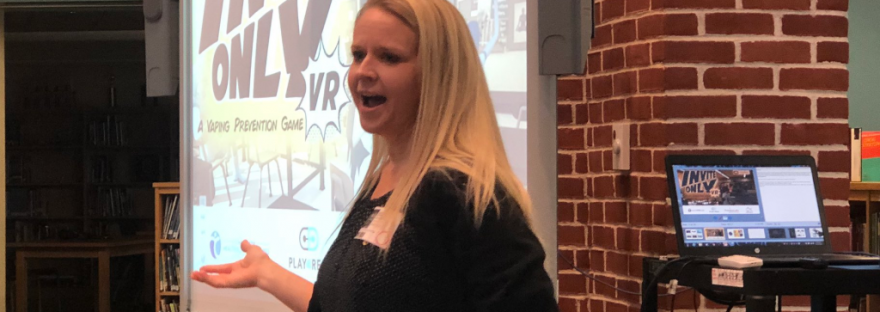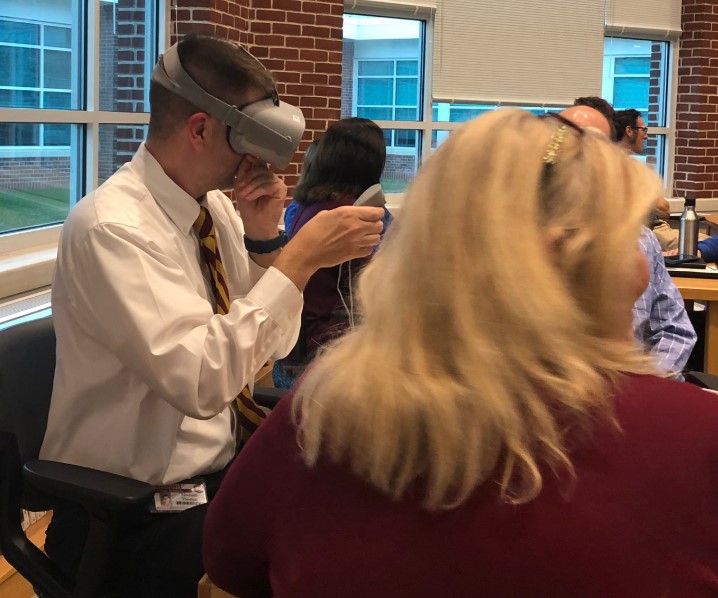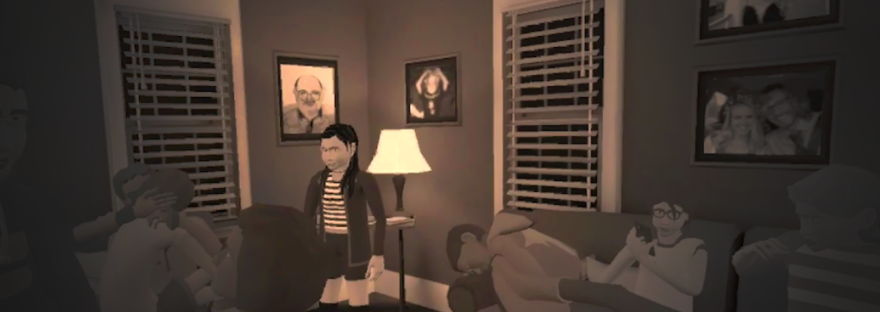Original post can be found here as a guest blog for #slowchathealth
Virtual reality isn’t coming to the health classroom….it’s already here, and it might be the most engaging and realistic teaching experience that you aren’t currently using. I recently asked teachers for health education predictions and I’m predicting that VR technology is eventually going to become commonplace, but are you ready for it? This week’s blog post considers this and comes from Kimberly Hieftje, PhD, is a Research Scientist at the Yale School of Medicine Director of the play4REAL Lab at the center, which focuses on the use of VR/AR/XR in games.
Ahead of the Game
Invite Only VR: A Virtual Reality Game for Vaping Prevention
In August of this year, I wrote a blog about bringing VR to the classrooms. My takeaway? There are some really great educational games and experiences that use virtual reality (VR), but not many schools have access to the technology to implement them in their classrooms. Seeing the need for vaping prevention interventions, I recently joined a Health Educators group on Facebook and posted about our VR vaping prevention game, Invite Only VR. I was thrilled by the excitement and interest from teachers but also disheartened to realize that most teachers just didn’t have access to the VR headsets needed to use the game. This has been wearing on me – I am a huge supporter of using game technology for learning and skill-building, but how do we get these great experiences in the hands of teachers and students? I don’t know the answer to this question, btw, so I’m putting it out there. I know this blog reaches many health educators, and your thoughts are invaluable.
For background, our lab (the play4REAL XR Lab at Yale) has been working on the development and evaluation of Invite Only VR for the past two years. This week was a good week – we wrapped up enrollment and gameplay with 291 7th and 8th grade students! Our next steps are to follow these students for the rest of the school year, collecting data along the way. Our big question – can playing a virtual reality video game change attitudes, intentions, and behaviors related to vaping? I believe it can.
Invite Only VR was developed for the Oculus Go and is free to download on the Oculus Store. In this engaging, story-based game, the player must navigate different types of peer pressure, including the pressure to vape (specifically JUUL) in various social situations such as in the school bathroom, in the back of a classroom, and at a party. Invite Only VR was developed by teens FOR teens – teens from all over Connecticut helped us to design the game, write the narrative, and even did the voice acting!
It takes about 90 minutes to complete the game, and covers topics such as: 1) general knowledge about vaping/JUUL, chemicals and flavors, 2) health and safety concerns related to vaping/JUUL, 3) the harmful effects of nicotine and nicotine addition, 4) legal aspects related to owning, using, and selling vaping products, including JUUL and JUUL pods, and 5)social media and marking influence of tobacco companies and others on teen’s attitudes and behaviors. We also have a teacher guide available on our website to facilitate discussions during and after gameplay.
Beyond the learning goals of Invite Only VR, we have also included several opportunities for real-time skill-building in the game. For instance, the game uses voice recognition software to allow players to verbally respond to characters (from pre-selected choices) and practice refusal skills. The player can choose different ways to refuse characters in risky situations by choosing to make a joke, make an excuse, change the subject, or suggest an alternative. We wanted to provide the player with the opportunity to say no, but in a way that left them feeling in control. Besides, we know that saying no to a close friend may look different than saying no to the cool upperclassman that you are hoping to impress.
In my opinion, the game is pretty cool. And perhaps we are ahead of the game in many ways. But, I also like to think we are adding to the dearth of experiential, skill-based learning experiences for health education that are greatly needed. In a few years, perhaps that gap will close and VR game-based interventions like Invite Only VR will be readily accessible for teachers.
For now, if you or your school is one of the lucky ones to have access to Oculus Go’s, please download our game from the Oculus store (for free!) and let me know what you think! Or, if you just want to reach out and give me your thoughts, I’d also love to hear from you – play4real@yale.edu.
Oh, and please follow us on Facebook and Twitter! @play4rlab and @khieftje
We are doing really cool stuff and creating more experiences around health education! Our next project, an augmented reality (AR) experience for teens on alcohol use prevention/harm reduction!
ABOUT ME:
Kimberly Hieftje, PhD, is a Research Scientist at the Yale School of Medicine Director of the play4REAL Lab at the center, which focuses on the use of VR/AR/XR in games. She is currently involved in the development and testing of several health behavior change video games and has published frequently on developing, evaluating, and implementing serious games. She has worked on games that have focused on topics including JUUL/e-c-cigarette prevention, tobacco use prevention, risk reduction in adolescents, HIV/STI prevention, HIV/STI testing, empowering young women around sexual health, bystander intervention, LGBTQ bullying, school climate, and increasing math skills in first graders.
Most recently, Dr. Hieftje received a gift from Oculus to fully develop and evaluate Invite Only VR, a VR video game intervention focused on JUUL/e-cigarette prevention in teens developed by the play4REAL Lab in partnership with PreviewLabs, Inc. Created for the Oculus Go, the game uses voice recognition software to allow players to practice refusing peers in real time. With her team at the play4REAL Lab, she will conduct a randomized controlled trial with 230 teens, following them for six months to see if playing Invite Only VR impacted their behaviors, attitudes, intentions, and social perceptions of JUUL/e-cigarettes. Additionally, the team will explore how VR can be leveraged to create the feeling of social pressure in simulated high-risk social situations involving peers.
Dr. Hieftje is also a K12 Scholar in the Yale Implementation Science program (YSIS), where she will collect and analyze qualitative and quantitative data from teachers and students on the implementation of a web-based video game intervention focused on tobacco use prevention with the goal of better understanding the factors associated with successful implementation of video games in schools.
